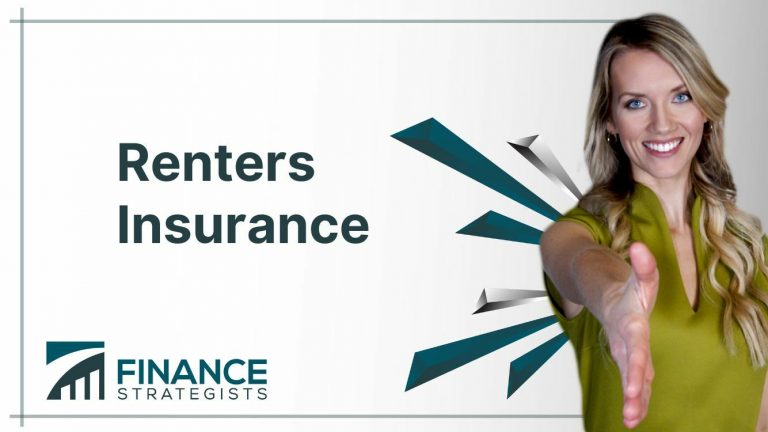Why Settling For Cheap Insurance Can Cost You In The Long Run
Are you often drawn to the most budget-friendly insurance option available? While the appeal of a low-cost policy is undeniable, have you ever taken a moment to consider the potential consequences of opting for the cheapest choice? While it may seem financially prudent initially, this decision could result in significant expenses.
This article will explore why settling for the cheapest option can ultimately prove costly in the long run.
We will discuss the importance of thorough research and investing in comprehensive coverage that aligns with your needs.
The Downsides of Choosing the Cheapest Insurance
Regarding insurance, affordability often leads individuals to select the cheapest available option. Saving money is undoubtedly appealing, but there is a reason behind the significantly lower cost of specific policies.
Cheap insurance plans frequently come with limited coverage and high deductibles. Some may even exclude coverage for specific situations or types of damage.
As a result, when faced with an accident or a natural disaster, you may be burdened with significant out-of-pocket expenses.
In addition to limited coverage and high deductibles, low-cost insurance policies often impose more limitations and exclusions.
Certain types of damage or loss may not be covered, or the range might be capped at a minimal amount. It leaves you vulnerable to substantial harm or loss due to accidents or natural disasters.
While the allure of an affordable insurance policy is strong, it is imperative to consider the long-term implications.
In an accident or a natural catastrophe, you could pay considerably more out of pocket than you would with a comprehensive policy.
The Hidden Costs of Budget Insurance
While the initial price tag of a cheap insurance policy might seem enticing, it is often accompanied by hidden expenses.
For instance, specific policies come with elevated deductibles, meaning you must pay more upfront before the insurance coverage takes effect. It could be problematic, especially when dealing with significant losses or damage.
On top of hefty deductibles, budget insurance policies may impose coverage limits. Your coverage might fall short of covering the total damage or loss you incurred, leading to substantial debt and financial stress.
Uninsurable risks arise when coverage for specific damage or losses is inadequate, leading to risks when faced with accidents or natural disasters that cause significant losses or damages.
Cheap insurance policies often exclude specific categories of damages or losses or may include exclusions regarding certain events and circumstances – leaving you open to risks when faced with large-scale loss and damage from accidents or disasters.
Overall, budget insurance may carry hidden costs that outweigh its potential savings from lower premiums.
Securing Adequate Coverage
Finding appropriate insurance coverage is vital to protecting yourself and your assets. While cheaper policies might seem appealing at first glance, it is wise to think long term when selecting an insurer.
Under an accident or natural disaster scenario, having adequate coverage to address all potential damage or loss is of utmost importance.
A comprehensive insurance policy not only ensures protection from unpredictable events, but it can also keep finances steady by helping protect against debt or hardships that could otherwise arise from unexpected circumstances.
Consider your unique circumstances when selecting an insurance policy, taking into account asset values, likelihood of events or situations, budget constraints and comprehensive coverage options that provide additional safeguards against hidden costs associated with budget policies.
Finding Affordable Coverage Without Compromising Quality
Adequate coverage is of utmost importance, but that doesn’t have to mean compromising either on quality or affordability. Many strategies offer inexpensive coverage options without compromising coverage quality.
One approach involves comparing policies from various providers. This will allow you to identify the ideal policy that meets all of your needs at competitive pricing, including coverage, deductibles and exclusions. Make sure you get maximum value.
Bundling policies is another effective method. Many providers offer discounts to those purchasing multiple policies from them at once, such as home and auto coverage. Bundling can save money while providing comprehensive protection for all your assets.
Adjusting deductibles is another viable solution to bring premium costs down, although higher deductibles will incur greater out-of-pocket expenses in case of loss. But they can significantly cut premium costs.
Consider engaging an agent to assist with navigating the complex insurance landscape and help secure a policy that suits both your requirements and budget.
Tips for Evaluating Insurance Policies
When reviewing policies, many factors must be taken into account to help make an informed decision. Here are a few suggestions to assist with informed decision-making:
- Analyze coverage limits and exclusions
- Compare Deductibles across Policies
- Research the Reputation and Financial Strength of Each Provider You Consider
- Focus on finding discounts by bundling policies together or keeping a clean driving record
- Evaluate customer service and claims processes offered by insurance providers before making your selection decision.
By considering all these factors, it’s easy to make an informed choice that aligns with both your needs and financial goals.
Working With an Insurance Agent
Partnering with an insurance agent provides many advantages. These professionals specialize in the complex world of insurance and can guide you to find a policy that best meets your requirements, while identifying gaps in coverage or suggesting additional policies to provide greater peace of mind.
Beyond helping you secure the appropriate policy, an insurance agent provides ongoing guidance and support. They can assist in filing claims as well as provide insight into maximising benefits – all to give you peace of mind!
Risks of Insufficient Coverage
Underinsurance can have serious repercussions. Without sufficient coverage, an accident or natural disaster could leave you facing overwhelming debt and financial struggles that threaten to undermine both your stability and future aspirations.
Uninsured or under-insured homeowners could find themselves unable to pay for repairs or reconstruction after an incident, leaving them homeless and under immense financial strain.
Lacking sufficient car insurance coverage could leave you financially and legally responsible for damages and injuries sustained in an accident, which could have serious repercussions.
Uninsufficient insurance coverage exposes you to significant risks, threatening both your financial security and future prospects.
Real-Life Instances of Insufficient Insurance Consequences
Numerous real-life cases illustrate the negative consequences of inadequate coverage. Following Hurricane Katrina, many New Orleans residents lacked adequate flood insurance policies and thus suffered considerable debt and financial strain as a result of its devastation.
California wildfires of 2017 brought chaos and uncertainty for homeowners without adequate insurance coverage, placing undue financial stress and uncertainty upon them.
These real-life scenarios illustrate the significance of investing in comprehensive coverage to protect both assets and financial well-being.
Conclusion
While the draw of inexpensive policies may be tempting, it’s essential to carefully consider their long-term ramifications.
Budget policies often come with hidden costs which aren’t immediately obvious; such policies often limit coverage with high deductibles and may not meet all your needs.
Should an accident or natural disaster arise, you could face significant out-of-pocket expenses that require out of pocket expenses to be covered by you or your assets.
Prioritizing comprehensive coverage is vital for safeguarding yourself and your assets – consider different strategies to find more cost effective insurance without compromising coverage.
Collaborating with an agent offers multiple advantages, including professional guidance and ongoing support.
Ultimately, conducting thorough research and investing in a comprehensive policy tailored to your requirements ensures protection against the hidden costs associated with budget insurance policies.






